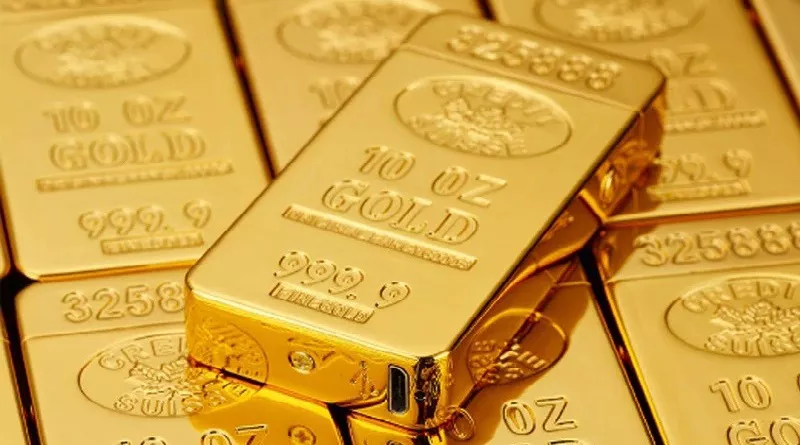In recent years, China’s appetite for gold has captured global attention. The nation has significantly increased its gold reserves, sparking speculation and debate about its motives and implications. This surge in gold purchases by China prompts a critical examination of the underlying reasons behind this strategic move. While multiple factors contribute to China’s gold acquisition spree, ranging from economic diversification to geopolitical ambitions, a nuanced understanding is essential to grasp the intricacies of this phenomenon.
Economic Diversification:
One of the primary motivations driving China’s gold accumulation is the imperative to diversify its vast foreign exchange reserves. Historically, China has held a substantial portion of its reserves in U.S. dollars and U.S. Treasury securities. However, concerns over the stability of the global financial system, exacerbated by events such as the 2008 financial crisis, have prompted Chinese policymakers to seek alternative assets to safeguard against currency risks and geopolitical uncertainties.
Gold, with its intrinsic value and status as a ‘safe-haven’ asset, offers an attractive option for diversification. Unlike fiat currencies, which are subject to inflationary pressures and geopolitical tensions, gold maintains its value over time, making it a reliable store of wealth. By increasing its gold reserves, China aims to reduce its reliance on the U.S. dollar and enhance the resilience of its foreign exchange holdings against external shocks.
Furthermore, as the world’s second-largest economy, China’s growing influence in global financial markets necessitates a more diversified reserve portfolio. By bolstering its gold reserves, China enhances its credibility as a key player in the international monetary system, potentially strengthening its bargaining power in economic negotiations and reducing its vulnerability to external economic pressures.
Geopolitical Considerations:
Beyond economic diversification, China’s gold-buying spree also reflects broader geopolitical considerations. In an increasingly multipolar world, characterized by geopolitical rivalries and shifting power dynamics, gold serves as a symbol of national strength and prestige. By amassing significant gold reserves, China enhances its status as a global economic powerhouse and reinforces its position as a major player in the international arena.
Moreover, as tensions between China and the United States persist, particularly in areas such as trade, technology, and territorial disputes, gold acquisition can be viewed as a strategic maneuver to counterbalance U.S. influence. By accumulating gold, China reduces its exposure to the U.S. dollar-dominated financial system, thereby diminishing the leverage wielded by Washington in economic and geopolitical matters.
Additionally, in the context of the ongoing trade war and geopolitical uncertainties, gold serves as a hedge against potential disruptions to global trade and financial markets. As geopolitical tensions escalate, investors flock to gold as a safe haven, driving up its price and reinforcing its role as a reliable store of value. By bolstering its gold reserves, China positions itself to weather potential geopolitical storms and safeguard its economic interests amidst turbulent international relations.
Central Bank Diversification:
China’s gold-buying spree is not solely driven by government policy but also involves significant participation from the People’s Bank of China (PBOC), the country’s central bank. In recent years, the PBOC has been actively increasing its gold reserves, signaling a strategic shift in its monetary policy approach. This trend mirrors similar moves by other central banks worldwide, which have been gradually diversifying their reserve assets away from traditional currencies towards gold.
Central banks view gold as a strategic asset that enhances their financial stability and sovereignty. Unlike fiat currencies, which can be devalued through excessive money printing or subjected to political manipulation, gold maintains its value independent of government policies or economic conditions. By increasing their gold reserves, central banks reduce their exposure to currency risks and bolster their ability to withstand economic shocks.
Furthermore, in an era of unprecedented monetary stimulus and unconventional monetary policies, gold serves as a hedge against inflation and currency debasement. As central banks inject liquidity into the financial system to stimulate economic growth, concerns about inflation and currency depreciation mount, driving demand for gold as a store of value. By accumulating gold, central banks protect the purchasing power of their reserve assets and mitigate the adverse effects of monetary expansion.
See Also Why Puregold Stocks Are Going Down: A Comprehensive Analysis
Conclusion:
China’s strategic accumulation of gold represents a multifaceted phenomenon shaped by economic, geopolitical, and monetary considerations. As the world’s second-largest economy and a rising global power, China’s increasing gold reserves reflect its desire to diversify its foreign exchange holdings, enhance its geopolitical influence, and safeguard its economic interests. Moreover, China’s gold-buying spree reflects broader trends observed among central banks worldwide, as they seek to navigate an uncertain economic landscape and preserve the stability of their reserve assets. In the years ahead, China’s gold policies will continue to be closely monitored, as they hold significant implications for global financial markets and the international monetary system.


